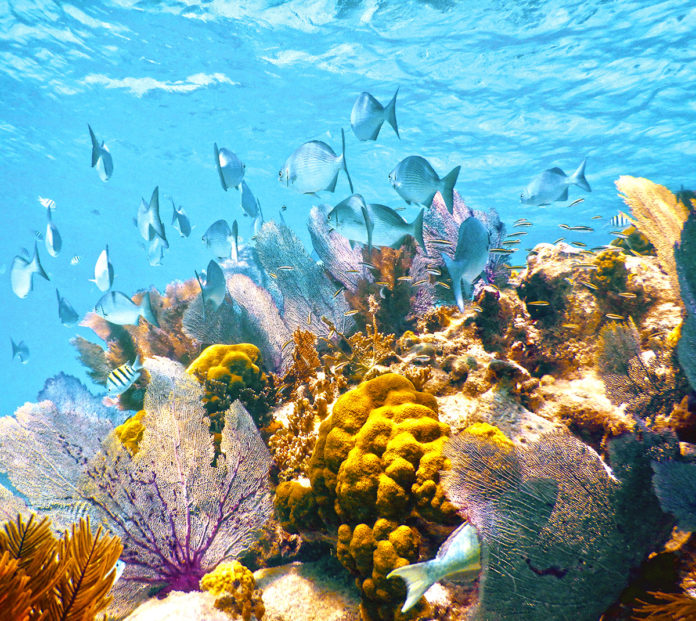Off the shores of the Florida Keys, the waters bustle with summer activities. A two-day lobster sport season saw many boats and people dipping beneath the surface in search of bugs. Meanwhile, scores of boats will pack local sandbars with their floats, coolers and music. Whether you’re exploring the depths or enjoying a summer day with friends, consider these tips to keep you and the surrounding environment safe this season.
IN THE WATER? HAVE THIS DEVICE ON YOU
Whether you’re snorkeling to gaze at fish or hunting for lobsters, ensure you have a divers-down device, such as a flag or buoy, to let nearby boats know you’re there. Per Florida boating law, the device must contain a divers-down symbol (a red rectangle or square with a white diagonal stripe) and must be at least 12-inches-by-12 inches in size (the bigger the better). On open water, boaters must make every attempt to stay at least 300 feet from the person in the water and slow to idle speed.
DESIGNATE A SOBER DRIVER (WHO KNOWS THE AREA)
Wind, vibration, noise and sun can impair balance and concentration on a boat. And that only intensifies when drinking alcohol or using drugs. According to Sea Tow Foundation, alcohol use is the leading contributing factor in fatal boating accidents every year. Boaters are encouraged to choose a designated sober skipper before leaving the dock, and Sea Tow encourages skippers to “take the pledge” to not drink or take any drugs. They’ll even send you a wristband to wear as a reminder. Also, be sure your skipper knows the area so you don’t end up aground or in a situation.
GIVE THE CORALS SPACE
While diving beneath the depths, keep hands and fins away from corals. And keep from banging your tickle stick from the corals. Utilize mooring buoys when they’re available, and if you’re looking to anchor up, be sure you find a sandy bottom. Coral reefs are facing enough battles from the likes of a stony coral tissue loss disease and pollutants. Let’s give them some space.
ESTABLISH A FLOAT PLAN
It’s always a good idea to file a float plan. That means that someone knows where you are going (generally) and when you will be back. If plans change, let them know. Call them when you’re back on dry land.
CHECK YOUR GEAR
Ensure you have a personal flotation device (life jacket) on board for every single person. And make sure they’re easily accessible.

















